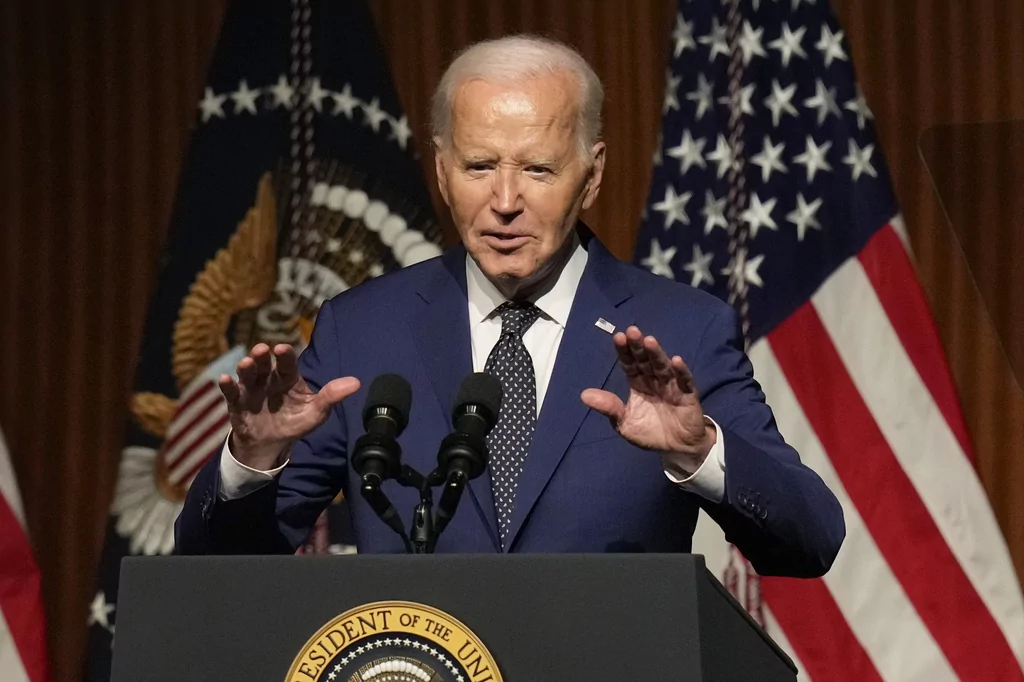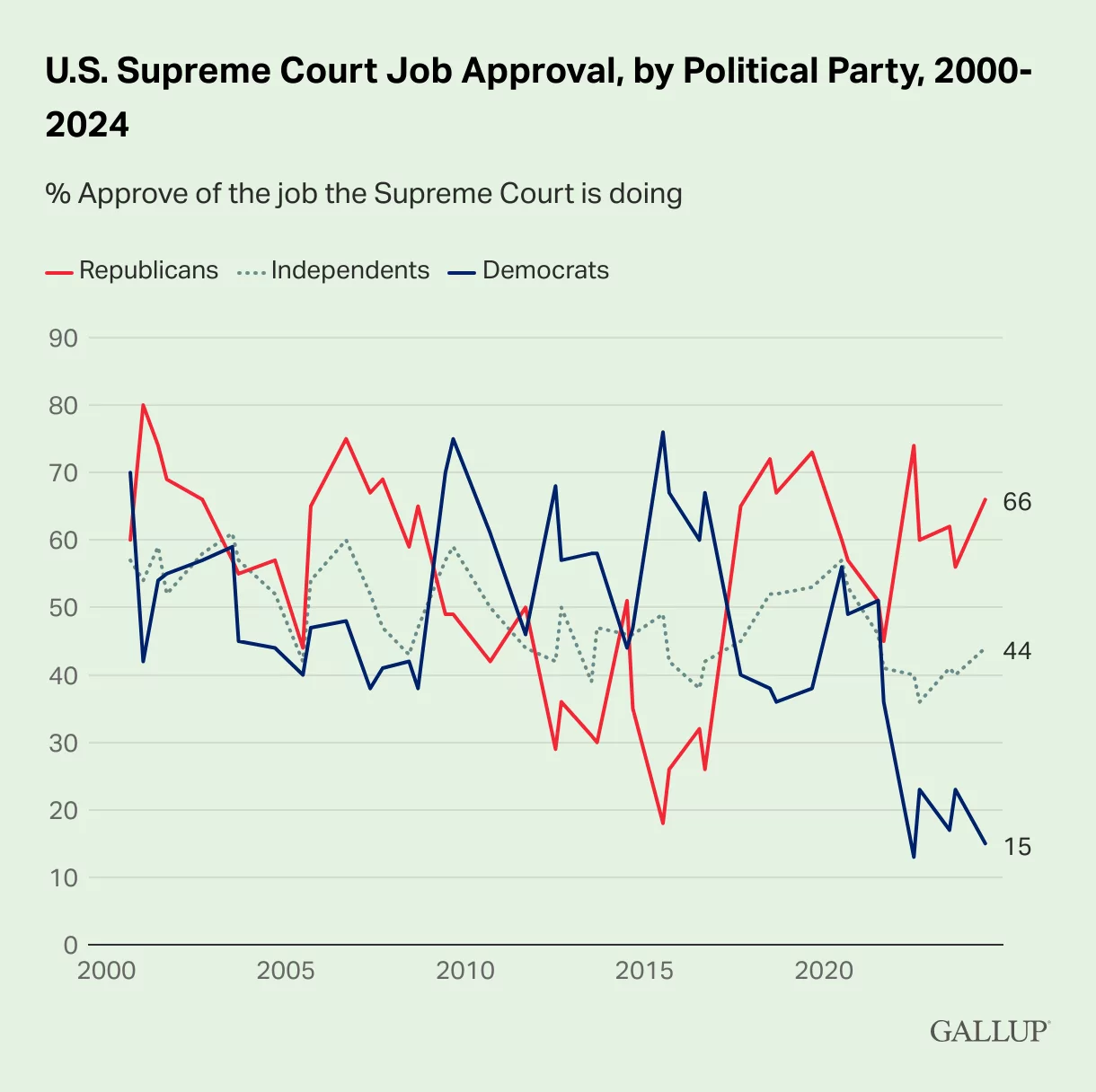
President Joe Biden’s claims that a crisis in confidence concerning the Supreme Court warrants unprecedented and sweeping reforms are belied by new polling data showing that concerns are largely driven by disaffected Democrats.
Despite the low likelihood that Biden’s Supreme Court reforms will garner support in a sharply divided Congress, polling data released from Gallup this week reveals the public’s negative sentiment against the Supreme Court’s work is anchored by Democratic respondents, not by independents and Republicans.
Jonathan Adler, a law professor at Case Western Reserve University, said he believes “the data suggests that the Biden proposal is about appealing to his base within the party more than it is about responding to broader public concerns about the Court.”

The president’s reform plans include term limits for justices, an enforceable ethics code, and an amendment to undo the high court’s recent presidential immunity decision, all of which face steep odds for passage through Congress. Alongside his announcement, Biden decried what he perceives as a Supreme Court plagued by “scandals” and is “mired” by ethics problems surrounding the 6-3 conservative majority on the bench.
“On top of dangerous and extreme decisions that overturn settled legal precedents — including Roe v. Wade — the court is mired in a crisis of ethics,” Biden wrote in an op-ed this week. “Scandals involving several justices have caused the public to question the court’s fairness and independence, which are essential to faithfully carrying out its mission of equal justice under the law.”

Democrats’ approval ratings of the Supreme Court’s job have fluctuated between a low of 38% and a high of 76% between 2000 and 2020. But it was not until July 2022, the month that the 6-3 Republican-appointed majority overturned Roe v. Wade, that Democrats’ approval reached historic lows. The high court’s approval rating among Democrats dropped to just 13% that month, with the current approval rating among Democrats resting at around 15% as of July of this year.
Partisans’ ratings fluctuated somewhat in the fall of 2022 and in 2023, but Democrats’ most recent approval rating is similar to the one measured immediately after the July 2022 Dobbs v. Jackson Women’s Health Organization decision, which gave states broad latitude to create laws with gestational limits for abortion. Independent voters’ ratings remain steady at roughly 44% approval, while 66% of Republicans approve of the current Supreme Court’s work.
Jonathan Turley, a professor at George Washington University Law School, told the Washington Examiner he believes the “polling shows that the response to President Biden’s ‘reforms’ has been the sound of one hand clapping,” noting that the justices this year also ruled “in favor of a number of liberal challenges.”
In his more than 40 years as a career politician in Washington, D.C., Biden remained cautious of backing efforts to change the judiciary fundamentally through executive action.
The White House team has said this proposal has been in the works for “some time,” noting Biden assembled a “bipartisan” commission to explore possible reforms to the Supreme Court in his first year in office, despite not taking any action after the group came back with a report on possible court reforms.
“Obviously, he did have a commission. It took them some while,” White House press secretary Karine Jean-Pierre said Monday.
“He respects the commission and — and certainly the feedback that they gave him. But, certainly, this was a process,” she added.
Other legal experts told the Washington Examiner that Biden’s decision to throw his support behind judiciary reform just months before the November election is all about motivating voters less than 100 days out.
“This is all about driving, driving their base to the polls,” said John Malcolm, vice president of the Institute for Constitutional Government at the Heritage Foundation.
“That’s what this is, and expressing their displeasure, as they have for years, about the one branch of government that the far-left does not control,” Malcolm said.
CLICK HERE TO READ MORE FROM THE WASHINGTON EXAMINER
Additionally, the plan comes at a time when outside left-wing groups have been calling for massive changes to the courts. The group United for Democracy is running a $10 million campaign centered on attacking the “MAGA Supreme Court” in May, while the group Stand Up America launched a million-dollar campaign in June.
“These major dark money donors, we know what their interests are,” said Carrie Severino, president of the conservative Judicial Crisis Network. “They’ve been funding research and attack pieces on the court because they’re willing to destroy any institution that doesn’t tow the line.”





